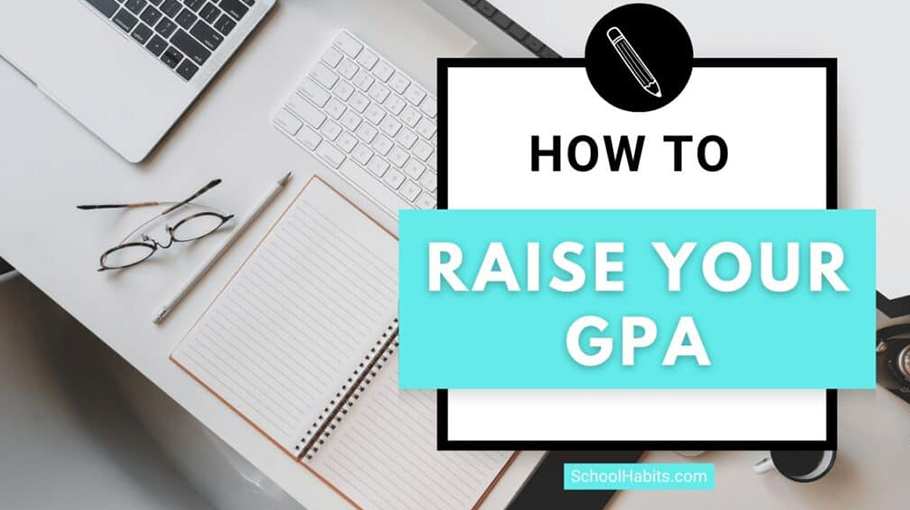How to raise your GPA

GPA stands for grade point average. This is a number that represents your cumulative average score (grade) across all your classes throughout high school and college.
Because your GPA depends on your grades, it can increase or decrease three or four times a year (depending if your school has trimesters or quarters).
Your GPA is finalized upon graduation.
Most schools report a GPA on a scale of 0-4. Some schools report a GPA on a scale of 0-5. The 4-point GPA is also called an unweighted GPA, and it does not take into account how challenging your courses are. On the other hand, a 5-point GPA, also called a weighted GPA, factors in the difficulty level of your courses. (AP and honors courses have more “weight” and are worth more points.)
Your GPA is a standardized way to measure your academic performance and predict future academic success. It matters for many reasons in high school and college.
The following strategies will help you get better grades, which will, in turn, raise your GPA.
Attend all your classes
If you’re serious about raising your GPA, then the absolute least you can do is go to your classes. If you don’t go to class, you won’t learn the material, and if you don’t learn the material, you won’t get good grades on your assessments. Furthermore, you’ll score low points for class participation and classwork, directly affecting your grade. Remember from the formula above that your class grade (whether you get an A, B, or C in the class) is one of the main factors in your GPA.
Study better
Notice I didn’t say study more. I’m not about that (well, sometimes you have to study more … but you know what I mean). Studying better means that you’re using a combination of legitimate active recall study methods even though it’s painful to do so. Yes, I know passively flipping through your notes is easier, but say it with me now: that’s not studying.
Get help
Getting good grades in hard classes is … hard. And sometimes that means that you have to get instruction from someone or somewhere beyond your teacher. Sure, you can stay after class with your teacher – and I would honestly try that first.
Take a break from extracurricular
I don’t give this GPA-boosting tip lightly, because as a former extracurricular overachiever, I know the value of doing all the fun things after school. With that said, if you’re getting nervous about your GPA because you’re a junior or senior, then you might have to bite the bullet and sit a season out so that you can focus on your grades. This advice might not make me popular, but I’m, like, not here for that.
Get better at managing your time
I know “manage your time better” can be some of the world’s most annoying advice, especially to students who hear it all the time. But if we can put those feelings aside for a second, it’s such good advice.
The truth is that studying and learning take time. You don’t hear something in class or watch a video once and poof! You know it! Scientifically, that’s not how the learning process works. Just like it takes our bodies a certain amount of time to process food, heal a cut, or grow muscles, it also takes time to build the neural networks and mental schemas related to learning. You might WANT to pull an all-nighter and learn your material super fast … but again, that’s not how the process works.
Again, the real answer to how to raise your GPA is to get better grades. Freshmen and sophomores have more time and flexibility to improve their GPAs because time is on your side. But if you’re a junior or senior, you only have a few semesters left to crank it up. My intention isn’t to cause panic: it’s to give you real information so that you can make good decisions.





